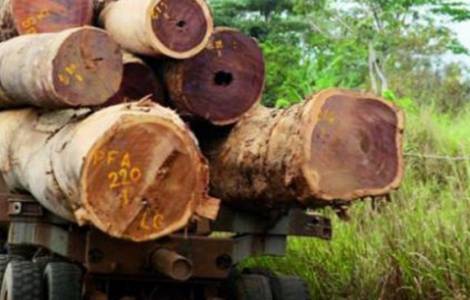
Dakar (Agenzia Fides) - The rebels of the Mouvement des Forces Démocratiques de Casamance (MFDC) stress that they have nothing to with the massacre of 13 young loggers killed on 6 January in a forest in this region of Senegal.
The MFDC issued a statement condemning the massacre and rejects any allegation of having committed it. According to the rebel group, at the origin of the massacre there apparently seems to be a dispute between some illegal teak cutters, a precious wood of which Casamance is rich. The rebel of the MFDC asks "the Senegalese authorities to direct the investigation on some local administrative and military leaders who are at the head of a vast network of clandestine cutting and illicit teak trade".
"The MFDC continues its openness to dialogue in view of a successful conclusion of the conflict in Casamance", affirms the statement reaffirming the commitment to dialogue with the authorities in Dakar undertaken through the mediation of the Community of Sant'Egidio.
Even before the MFDC declaration, the governor of Ziguinchor, the capital of the region, had said he believed that the massacre "will not affect the process that has now begun" adding that "there is an irreversible dynamic to proceed on the path of peace".
The massacre was committed in the aftermath of the liberation of two members of the MDFC's North Front by the Senegalese authorities.
The independence movement has long been divided into at least two rival factions: the Northern Front led by Salif Sadio, and the Southern Front of César Atoute Badiate.
At first it was thought that the killing of loggers was tied to rivalry within the MFDC, in particular at the attempt of one of the factions to blow up the rapprochement between the government and the competing faction within the rebel movement.
Casamance is a region of Senegal wedged between Gambia and Guinea Bissau, inhabited mainly by Catholics, in a country with a large Muslim majority. Since 1982, the MFDC has been conducting a "low-intensity" war for the secession of the region from the rest of the Country. After several attempts of mediation and rift within the secessionist movement, in 2017 the peace talks seem to have made progress with the Salif Sadio faction.
The rebels of Casamance also lost an important sponsor, the President of Gambia Yahya Jammeh, forced to leave power last January (see Fides 21/1/2017), thus contributing to give a new dynamic to the search for a peaceful solution to the crisis. (L.M.) (Agenzia Fides, 8/1/2018)